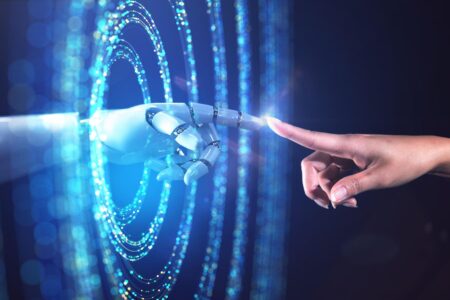Mala Ramakrishnan, Founder and Managing Partner at Progressive Ventures, fueling the next wave of AI innovation, out of Silicon Valley.
Google recently invested $32 billion in Wiz, a Cloud Security Platform. This acquisition underscores the immense value of securing the cloud layer of the tech stack. Each layer of infrastructure—networks, clouds and data (Snowflake, Databricks)—creates massive opportunities for innovation and security. As Google strengthens its cloud security position, the next frontier is security for the modern AI data stack, and it remains to be seen who will own that market.
A deal of this scale highlights the urgency around cloud security. And yet, the biggest security failures rarely stem from cutting-edge attacks. They happen because of mundane, preventable errors: misconfigurations, unpatched vulnerabilities, gaps buried in terabytes of noise. That’s where AI changes the game. Not because it’s smarter than humans but because it never gets tired of watching, analyzing and catching what we miss.
With the cybersecurity AI market projected to hit $60.6 billion by 2028 (growing at 21.9% CAGR), security is shifting from reactive guesswork to a structured, data-driven discipline. AI is turning cybersecurity from an unpredictable arms race into a system that can be continuously understood, improved and secured.
The Fundamental Shift: How AI Is Changing Security
Cybersecurity has always involved an ongoing challenge. Build defenses; attackers circumvent them. Fix vulnerabilities, and new ones emerge. We’ve operated on detection and response for decades, with humans as the ultimate decision makers.
AI is changing this equation in three significant ways.
1. Security economics is inverting. Traditional signature-based systems kept defenders perpetually behind. Now, behavioral AI model can identify anomalies without needing to see the attack beforehand. This shifts the advantage from attackers to defenders.
2. Threat volume has outpaced human capacity. Some of the biggest enterprises face over 1,000 security alerts daily. AI-powered analysis summarizes critical alerts and automates responses, accelerating investigations by approximately 55%.
3. The attack surface continues expanding. IoT devices, cloud infrastructure and remote work have dissolved traditional security boundaries. AI-driven approaches provide the only practical method to protect environments that change hourly.
Where AI Creates Investment Opportunities
The intersection of AI and security creates several distinct market opportunities:
• Autonomous Security Operations: The tiered approach to security is being reinvented through AI. What once required teams of Tier 1 agents performing 24/7 monitoring, Tier 2 agents handling containment and Tier 3 specialists conducting forensics can now be orchestrated through autonomous systems.
• Predictive Security Intelligence: Traditional approaches to vulnerabilities and threats are increasingly outdated. Forward-thinking companies use AI to predict which vulnerabilities attackers will target and automate routine security tasks like phishing detection.
• Identity-Centered Protection: With perimeter dissolution, identity has become security’s cornerstone. AI systems that continuously authenticate users based on behavioral patterns show the strongest sector revenue growth.
• Supply Chain Integrity: Advanced attacks increasingly target software supply chains. AI systems verifying code provenance and detecting tampering throughout development address the core principles of integrity and non-repudiation.
When AI Becomes A Security Challenge
Although the benefits are vast, AI is still being used to power cyber attacks that rapidly evolve in both sophistication and frequency, leveraging advanced algorithms to automate, personalize and scale malicious activities. The most common forms of these attacks to be aware of include:
• Phishing And Social Engineering: Generative AI crafts hyper-personalized phishing emails and real-time scam chatbots.
• Deepfakes And Voice Cloning: Realistic impersonations enable fraud and bypass authentication.
• Adaptive Malware And Adversarial Attacks: AI automates malware evolution, system manipulation and large-scale scams.
These attack types are not only more difficult to detect and prevent, but they also operate at a scale and speed that traditional cybersecurity measures struggle to match. With this in mind, humans will remain irreplaceable in cybersecurity for:
• Strategic Security Planning: Humans remain essential for designing security architectures, setting policies and ensuring legal/ethical compliance, areas where AI lacks contextual understanding.
• Adaptive Threat Response: Human expertise is critical for investigating zero-day attacks, creative problem-solving and post-incident analysis to improve defenses.
• Human-AI Partnership: Resilient cybersecurity relies on combining AI’s capabilities with human skills in crisis communication, stakeholder management and strategic decision making.
Evolving Security Through AI-First Principles
The security landscape continues evolving in ways that favor AI-native approaches:
• Zero-Trust AI Architectures: The move to AI-first architectures means companies have more complex, interconnected systems running across multiple cloud providers, helping secure entire cloud infrastructures, identifying risks before they become breaches.
• AI-Powered Attack Systems: Security teams increasingly defend against automated attack platforms. Approximately 74% of security professionals report their organizations experiencing substantial impacts from AI-driven threats, creating an escalating AI vs. AI security environment.
• Privacy-Centered Design: As regulations evolve and consumer awareness grows, security systems built with privacy as a core design principle create market differentiation beyond compliance. The companies that will dominate aren’t just securing data—they’re respecting it.
What’s Next: Consolidation And Opportunity
Industry consolidation continues accelerating. For founders and investors, opportunities extend beyond addressing the talent gap (expected to reach 3.5 million unfilled positions by 2025). The most promising companies will reimagine security operations for environments where human expertise and AI complement each other.
The most compelling investment opportunities won’t be simply applying AI to existing security workflows but developing entirely new approaches to persistent security challenges, like Wiz, which developed full-stack visibility across multicloud environments. That’s where I’ll be looking for the next unicorn, and that’s where we can expect the outsized returns to be found.
The information provided here is not investment, tax, or financial advice. You should consult with a licensed professional for advice concerning your specific situation.
Forbes Business Council is the foremost growth and networking organization for business owners and leaders. Do I qualify?
Read the full article here











